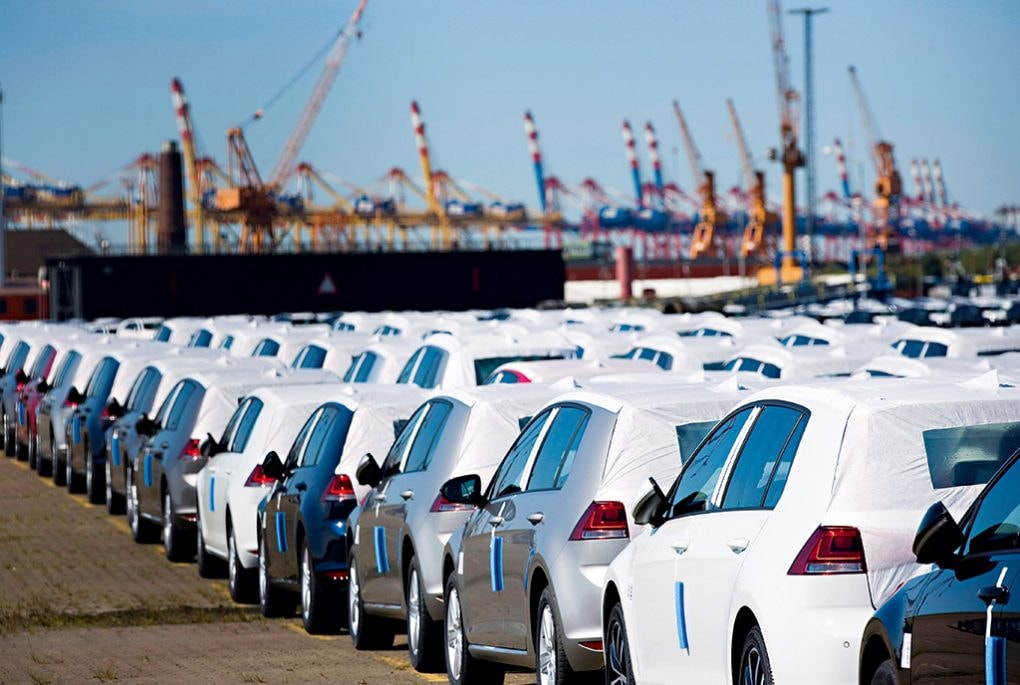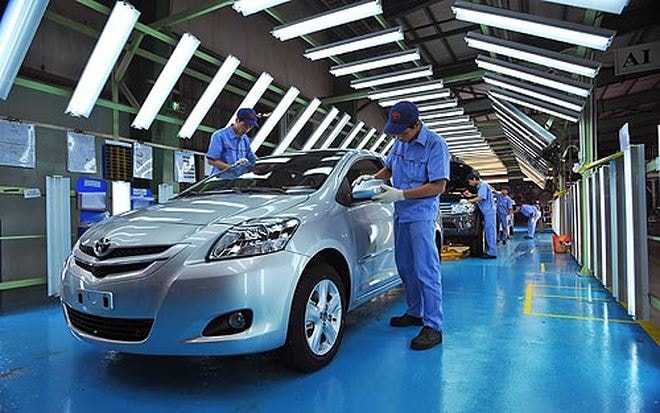Tens of thousands of 0% tax cars flood in: Imported goods have good prices, domestic cars face difficulties
After overcoming the “barrier” of Decree 116, imported cars began to flood into Vietnam. Dozens of new imported car models, launched at the end of the year, in large numbers, are putting pressure on domestic cars.
Imported cars are coming in droves
August and September 2018 were a bustling time for the automobile market with nearly a dozen imported car models from the ASEAN region enjoying 0% tax being launched, typically the models: Mitsubishi Xpander, Mazda BT 50, Ford Everest, Ford Ranger, Toyota Yaris, Toyota Wigo, Toyota Rush, Toyota Avanza, Honda HR-V,...
Imported cars are flooding into the country and are selling well, making up for low sales since the beginning of the year.
According to data from the Vietnam Automobile Manufacturers Association (VAMA), in August 2018, over 5,600 imported cars were sold, an increase of 66% compared to the previous month, even though it was the most gloomy time of the year for the car market, coinciding with the "ghost month".
 |
| Imported cars poured into Vietnam in August and September. |
Meanwhile, data from the General Department of Customs shows that in August 2018 alone, more than 11,000 complete cars were imported into the country. This number is equivalent to the number of monthly imported cars in 2017, when Decree 116 had not yet taken effect.
According to the General Department of Customs, from mid-July 2018 until now, the number of cars with less than 9 seats imported into Vietnam has increased significantly compared to before, about 1,500-2,000 cars per week. Continuously arriving at the port to wait for procedures and delivery, signaling that imported cars have cleared the deadlock and flooded into Vietnam.
Meanwhile, although domestically assembled cars still have large sales, they are on a downward trend. Specifically, according to a report from VAMA, domestic assembled car sales in August 2018 reached 14,875 cars, down 18% compared to the previous month and down about 4% compared to the same period in 2017.
GM Vietnam has quietly stopped assembling cars since a few months ago. The assembled car models of this company include: Spark, Aveo, Cruze, Captiva,... only remaining inventory is sold by dealers. This company is distributing and promoting two imported car models: Colorado and Trailblade.
Although imported cars enjoy 0% tax, the price reduction is not as expected. However, it is starting to put pressure on domestic cars, due to Vietnamese people's preference for foreign goods.
Domestic cars are unsafe.
Meanwhile, domestically assembled cars are expected to face a disadvantage when competing with imported cars that enjoy 0% tax. Businesses say that if imported cars flood in, prices will fall further and domestically assembled cars will have difficulty competing, because their prices are about 10-15% higher.
In fact, currently up to 90% of components supplied to domestic auto assembly enterprises must be imported. When importing components, enterprises must pay additional packaging costs and import taxes. At the factory, they must be disassembled and then assembled into vehicles, while the scale and output are low, making the costs of manufacturing domestic vehicles higher than those imported from Thailand and Indonesia.
 |
| Domestically assembled cars are expected to face a disadvantage when competing with imported cars that enjoy 0% tax. |
According to the Ministry of Industry and Trade, in the first 6 months of 2018, automobile assembly companies increased their expansion and capacity, such as Truong Hai Auto Corporation (Thaco) inaugurated and put into operation the Thaco Mazda Factory with an initial capacity of 50,000 vehicles/year. Hyundai Thanh Cong Company expanded production and assembly of commercial vehicles with a capacity of 42,000 vehicles/year... Thereby, domestic production and assembly strongly recovered, reaching 114,600 vehicles of all kinds, an increase of about 15.5% compared to the same period in 2017.
This agency estimates that the production and assembly of automobiles by domestic enterprises in 2018 will reach about 235,000 vehicles of all kinds, down 1.3% compared to 2017. Of which, in the third and fourth quarters, each quarter will produce and assemble about 60,000 vehicles. However, production is one thing, but whether or not all of them can be sold is another story.
Meanwhile, the factory expansion project of Hyundai Thanh Cong Company in cooperation with Hyundai Motor Korea, producing Hyundai passenger cars, is being invested in and expanded; along with that, the car project of VinGroup corporation is about to be completed, which will be a good signal for increasing the output of domestically produced and assembled cars in the near future.
But if imported cars flood in in large quantities at low prices, domestic auto companies will certainly face difficulties.
To promote the domestic automobile industry, the Ministry of Industry and Trade said that it is necessary to have measures to control the amount of imported cars and support domestic production and assembly.
Enterprises are still waiting for adjustments to import taxes on components and spare parts, which are lower than the import tax on finished cars. Along with that, there are incentives for special consumption taxes on cars with a high localization rate (no special consumption tax on the value created domestically) to create incentives for domestically assembled cars.
